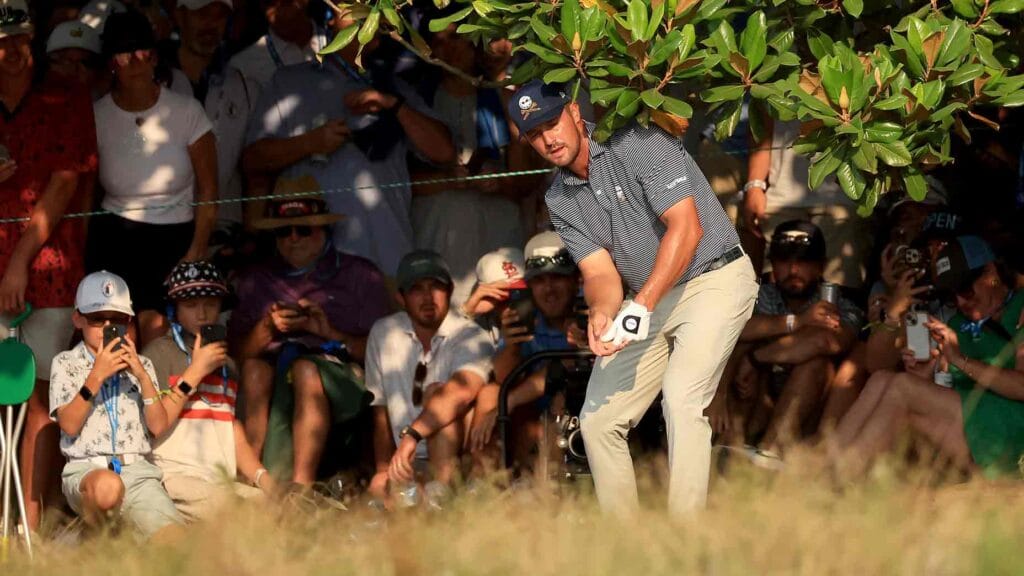Bryson DeChambeau’s victory at the 2024 U.S. Open was not without its challenges, as he faced tough situations throughout the final round. Despite holding a three-stroke lead heading into Sunday, DeChambeau struggled with his accuracy off the tee, hitting only 5 of 14 fairways and 11 of 18 greens. This led to a final round score of 1-over-par 71, his highest score of the week. However, it was his ability to excel in pressure situations that ultimately secured him the victory.
One of the most critical moments of the tournament came on the 18th hole, where DeChambeau found himself in a challenging position after hitting his tee shot into a native area and ending up underneath a tree. Despite the difficult circumstances, he managed to execute a remarkable shot that landed in a greenside bunker, setting up one of the greatest up-and-downs in recent major history. DeChambeau’s ability to remain calm under pressure and make clutch shots when it mattered most was a testament to his mental strength and preparation.
In a post-tournament press conference, DeChambeau revealed that his confidence in dealing with unpredictable situations on the golf course stems from his childhood practice. As a young golfer, he would intentionally put himself in difficult lies outside of the fairway to test his abilities and spark creativity. This unique approach to training helped him develop the skills necessary to handle challenging circumstances and make confident decisions under pressure.
Unlike many amateur golfers who practice in ideal conditions, DeChambeau’s unconventional training methods have prepared him for the unexpected challenges that can arise during a round. By simulating imperfect situations and developing a game plan for dealing with adversity, he has gained a competitive advantage over his peers. This emphasis on creativity and mental visualization has allowed DeChambeau to excel in high-pressure situations and execute shots with precision.
DeChambeau’s success at the U.S. Open serves as a reminder to amateur golfers that practicing under realistic and challenging conditions can enhance performance on the course. By incorporating elements of unpredictability and adversity into training sessions, players can develop the skills necessary to handle difficult lies, awkward stances, and unexpected obstacles. This proactive approach to preparation allows golfers to adapt to changing circumstances and make confident decisions when faced with tough situations.
As DeChambeau’s victory demonstrates, mental fortitude and creative problem-solving are essential components of success in golf. By embracing uncertainty and practicing with purpose, players can improve their ability to navigate challenging situations and maintain composure under pressure. Whether it’s hitting shots from buried lies or navigating tricky greens, developing a mindset of resilience and adaptability can help golfers perform at their best when it matters most. Emulating DeChambeau’s approach to training and competition can lead to improved performance and a greater sense of confidence on the course.


